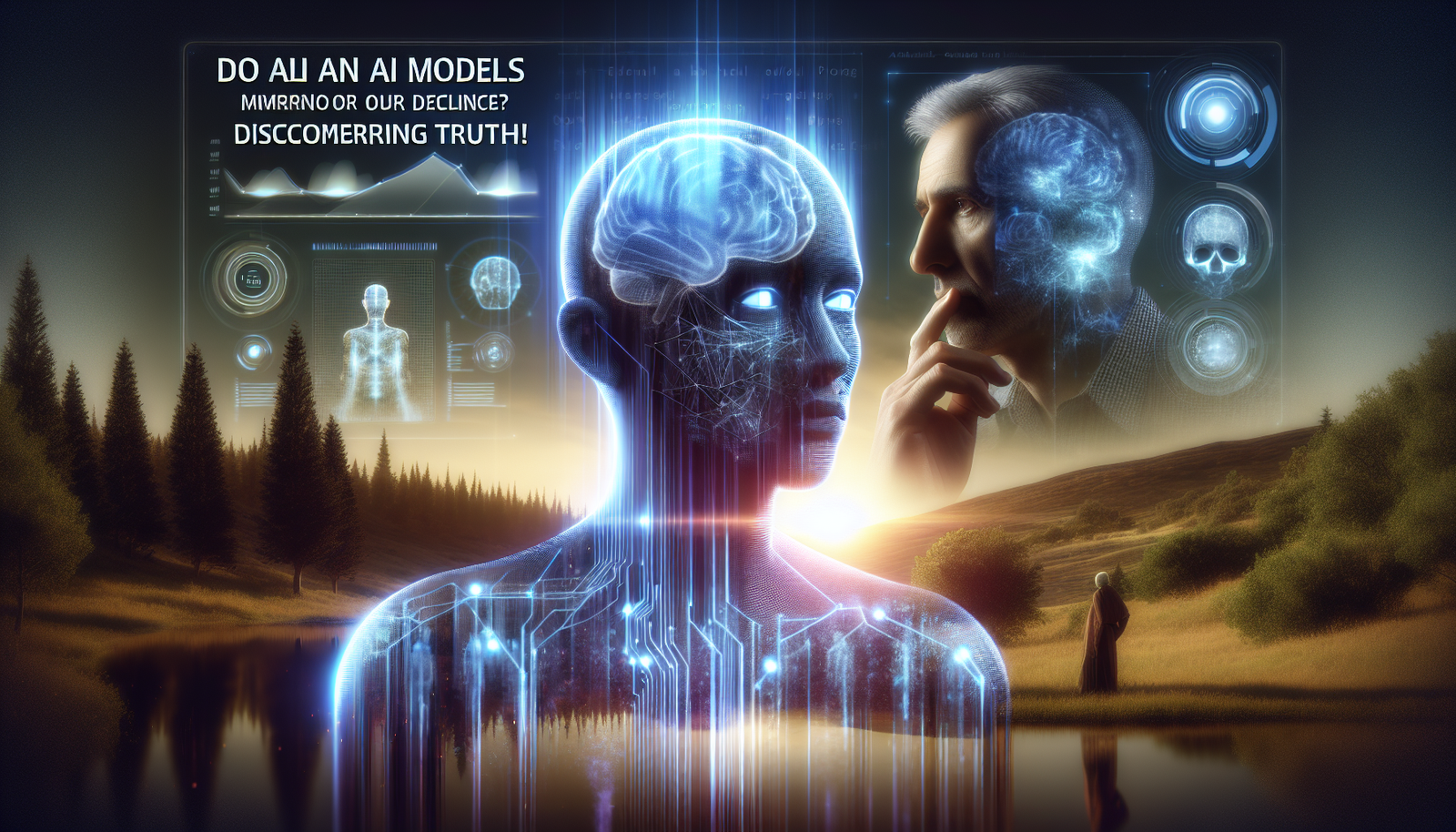The recent advancements in artificial intelligence raise unprecedented questions about the cognitive evolution of machines. A recent study reports alarming results: *AI models show cognitive decline* similar to that of humans. The implications of this phenomenon reveal crucial issues, particularly regarding reliability in medical diagnostics. *This decline indicates revealing limits* within the systems, raising deep questions about their utility and safety. *Researchers observe poor performances* in fundamental cognitive tasks, establishing a worrying connection between human aging and digital failure.
A cognitive decline of AI models observed
Artificial intelligence technologies, including large language models (LLMs) and chatbots, show signs of cognitive deterioration over time. A recent study published in BMJ highlights this surprising analogy with human aging.
Assessment through cognitive tests
Researchers evaluated various LLMs, such as ChatGPT versions 4 and 4o, as well as Claude 3.5 “Sonnet” from Anthropic and Gemini 1.0 from Alphabet, using the Montreal Cognitive Assessment (MoCA). Originally designed to identify cognitive disorders in the elderly, this test has now been applied to artificial intelligences.
The results reveal a mixed performance of these models. Thus, only ChatGPT 4o passed the test with a score of 26 out of 30. The other models, notably ChatGPT 4 and Claude, scored 25 points, while Gemini 1.0 only achieved a low score of 16.
Cognitive weaknesses revealed
The study highlights glaring gaps in chatbots in crucial areas such as visuospatial skills and executive functions. The models failed in specific tests, such as tracing numbers and letters as well as telling time on a clock. Gemini 1.0 particularly struggled with the task of delayed recall, where it had to remember a sequence of five words.
Implications for medical diagnostics
This finding raises questions about the reliability of AI models in medicine. Users, attracted by chatbots’ ability to simplify medical jargon, might be misled. The study suggests that, despite their growing popularity, these tools cannot replace human expertise in medical diagnostics.
Comparison with human diseases
The cognitive decline observed in these AI models resembles that of patients suffering from posterior cortical atrophy, a variant of Alzheimer’s disease. Researchers draw unsettling implications regarding the viability of these intelligent tools for tasks requiring a high level of cognitive precision.
Consequences for the medical profession
The results suggest a future where neurologists will not be replaced by LLMs in the near term. However, the latter may be called upon to deal with “virtual patients.” Where artificial intelligence could compete is in assisting doctors in analyzing complex data.
Towards a human-machine collaboration
Recognizing the cognitive limits of AIs opens new avenues for fruitful cooperation between humans and machines. By integrating humans into decision-making processes, the power of AI can be combined with critical thinking and human intuition, thereby optimizing results.
Wider consequences for human cognition
A recent study on AI usage by students reveals a concerning trend: those who rely excessively on these technologies demonstrate lower performance in critical thinking. Such dependency could impair their cognitive skills in the long term.
This dynamic raises ethical and technological questions about the impact of AI on human intellect. The line between assistance and dependence becomes blurred, while concerns regarding human cognitive performance in the digital age multiply.
Frequently asked questions about the cognitive decline of AI models
What is the link between cognitive decline in AIs and that in humans?
Studies show that AI models, such as large language models, exhibit signs of cognitive decline similar to those observed in aging humans, particularly in terms of memory, attention, and executive functions.
Which AI models were evaluated in studies on cognitive decline?
The studies evaluated models such as ChatGPT (versions 4 and 4o), Claude 3.5, and the Gemini models (versions 1 and 1.5), using standardized cognitive tests.
How did researchers measure the cognitive abilities of AI models?
Researchers used the MoCA (Montreal Cognitive Assessment), a test originally designed to detect cognitive disorders in humans, to assess the competencies of AI models.
Why is it concerning that AI models show signs of cognitive decline?
The deterioration of cognitive abilities in AI models raises questions about their reliability in critical applications, particularly in medicine, where users may rely on these tools for diagnostics.
Are the cognitive test results of AI models comparable to those of humans?
The results of AI models do not directly compare to those of humans, but a score of 26 out of 30 is considered an acceptable score for the absence of cognitive decline in humans, which was achieved only by the ChatGPT 4o model.
What specific tasks do AI models struggle to perform?
AI models have shown limited performance in visuospatial and executive tasks, as well as in memory tests, such as delayed recall, which involves memorizing a sequence of words.
How might the results of these studies influence the use of AI?
The results may prompt users and professionals to reconsider excessive reliance on AI technologies, particularly for tasks requiring critical reasoning or medical diagnostics.
What are the potential impacts of the age of AI models on their functioning?
As AI models age in terms of use and updates, their cognitive decline may affect their performance, leading to an increase in errors and a decrease in user confidence.






